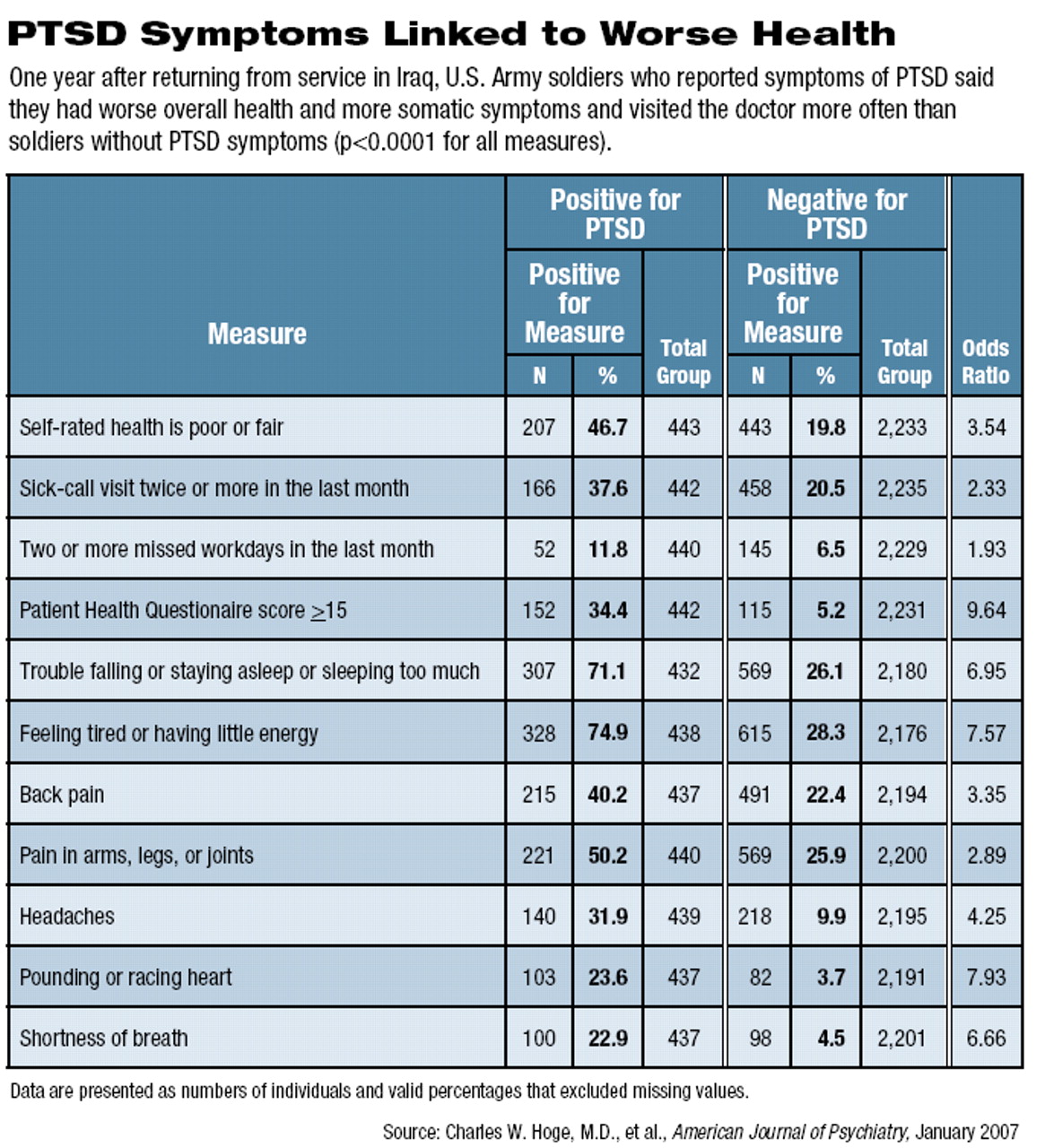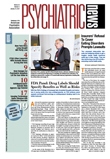Posttraumatic stress disorder (PTSD) is closely linked to physical symptoms in soldiers a year after their return from Iraq, even after controlling for wounds or injuries.
Combat veterans reporting significant symptoms of either physical illness or PTSD should be evaluated for both conditions, said the latest report on postcombat mental health from the Walter Reed Institute of Research in Silver Spring, Md. The study was published in the January American Journal of Psychiatry.
The researchers sur veyed 2,863 soldiers from four U.S. Army combat infantry brigades a year after their return from duty in Iraq. The soldiers were asked about their overall health, as well as alcohol misuse, symptoms of depression and PTSD, sick-call visits, missed work days, and somatic symptoms. Unlike with most screening questionnaires, the soldiers responded anonymously. Soldiers completed the 17-item National Center for PTSD Checklist, the Patient Health Questionnaire Depression Scale–9, and an alcohol screening test. The Patient Health Questionnaire–15 was used to assess somatic symptoms.
About 80 percent of the participants were under age 30, 97 percent were male, 56 percent were enlisted personnel, and 17 percent had been injured or wounded.
Overall prevalence of PTSD was 16.6 percent. A comparable group of soldiers recorded a prevalence of 5 percent before deployment. However, of those wounded or injured at least once, 31.8 percent (150 of 471) met PTSD criteria, compared with 13.6 percent (311 of 2,287) of unwounded troops (odds ratio=2.97).
The veterans who screened positive for PTSD also had poor self-rated health, two or more sick-call visits, and two or more missed workdays even after controlling for combat injuries.
About 47 percent of soldiers screening positive for PTSD rated their physical health as fair or poor, compared with 20 percent of those who screened negative. Also, 71 percent of those with PTSD reported sleep problems, compared with 26 percent without PTSD (see chart).
“Approximately one-third of the soldiers who screened positive for PTSD had high somatic symptom severity. .confirming the strong association between PTSD and indicators of physical health independent of physical injury,” wrote Charles Hoge, M.D., and colleagues from Walter Reed.
This association may be mediated by biological, psychological, behavioral, or attentional processes, they suggested.
The study may be limited by its reliance on self-reports rather than clinician interviews. Although the respondents were not selected randomly, they do represent soldiers who have been most heavily exposed to combat.
The results may also be a conservative reflection of the soldiers' health since those who might have been hospitalized or going to medical appointments on the days the surveys were taken were excluded.
Physicians and other health professionals in the military services, the Department of Veterans Affairs, and civilian primary and specialty practices should evaluate both the physical and mental health of combat veterans, Hoge and his team concluded.
“Association of Posttraumatic Stress Disorder With Somatic Symptoms, Health Care Visits, and Absenteeism Among Iraq War Veterans” is posted at<www.ajp.psychiatryonline.org/cgi/content/full/164/1/150>.▪

